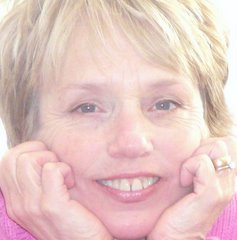 Our daughter and her husband, who are expecting in late July, are remodeling the house she lived in as a small child. It's been a rental for twenty-three years, simply because we couldn't give it up when we moved---There were just too many memories.
Our daughter and her husband, who are expecting in late July, are remodeling the house she lived in as a small child. It's been a rental for twenty-three years, simply because we couldn't give it up when we moved---There were just too many memories. That house, a small bungalow with a basement apartment, was where two of our children were born and the doctor stayed for breakfast because his wife brought it. We planted trees in our backyard--one for each child, and this multi-generational neighborhood boasted a bevy of children, an octogenarian widow and everything between. We were mothers of small children, and we cared for each other's children because we were at home, together. It wasn't unusual to stay at home then, and we weren't running any cottage industries.
In the summer, my husband would pull out the barbecue pit for any neighbors who wanted what people would later call block parties, except these parties were spontaneous, and after dinner and children running through our collective yards, we tucked our little ones in bed, called our neighbor, left the phone beside our sleeping children (an intercom created by my engineer husband) and ran across the street to watch the latest phenomenon--movies on a VCR--a miracle in 1983.
I could go on, remembering Mrs. Black, our eighty plus next door neighbor who, out of sympathy I think, brought me flowers from her garden when I was two weeks overdue--and she carried with her a comforting tale about the approaching full moon. Our son was born under that full moon, and I look back on that time with Mrs. Black and see how naturally she shared her wisdom and kindness with me.
I don't know how typical we were. I know some young parents in the 1980's were having a similar experience--I'm sure not all. I do think we had a sense of connection and belonging that was translated to our children through the living of it. In Dr. Rayne's recent blog about creating community, she talks about the reasons we don't reach out to the children, in particular--the teenagers around us--
"because we all move so much.... becauseI agree with her and will, like her, go out on a limb and expand on her idea by offering some more reasons we don't connect.
we're freaked out by teenagers,
and.... because we're so focused inwardly
that we don't pay attention to
other people's families any
more"
If you think of time as a piece of paper, I think that as a society, we no longer have the margins. Dr. Richard Swenson talks about how we can create more Margin time, and he also says that we've filled our analogous paper more and more, until we have fewer margins or unmarked, spontaneous time. His ideas make sense to me, when considering the number of two career families, the second job of housework and childcare, and cottage industries (now when is it I stop working?)
As a whole, I think we are attached to productivity for our self-esteem. As chuck the girl says about her own workalcoholism--
"It (overwork) makes you feel important. as in "I CANT sleep! I'm
too important! I'm needed
22 out of the 24 hours a day!" plus it leaves no
time for all of those pesky
existentialist ruminations you're doing at 2 am
if you get insomnia and actually
are lucky enough to have a job that allows
you to earn a living and still sleep
8 hours a night. if you are a
workaholic you don't have that problem. because
you didn't get insomnia.
because you were already up at 2 am doing a spreadsheet
for something at
work. and spreadsheets are so uncomplicated and clean and leave
no room for
existentialist thoughts. Plus it really simplifies the ole personal
life. I
mean, yeah maybe you sense a dull void somewhere in the back of your
mind
that meaningful somebodies are missing from your life and you haven't
contacted your best friend or your gang for awhile. but its only a slight
sense
of that dull void. not an acute longing. and remember, just like pesky
existentialism, you now no longer have time for all of the complications
brought
on by friendships."
Well said about time and work....and...besides all the hoopla about time (which is significant)...the potential for who our community is has expanded exponentially. Case in point: I'm sitting in my office in my four square house of twenty-three years and with whom am I in conversation? It's Dr. Rayne and Tom Parish--who live in Austin, Texas, interestingly, in the same neighborhood. Tom, a friend since the 1990's and Karen Rayne--whom I've never met, except online. I could go on, and you get the point. In fact, when given the time to reflect on her life--who does "chuck the girl" go to anyway?--Her online tribe are the ones--because of common interests--not because they are in close proximity.
When I look at my life now and compare it to twenty something years ago, I see a shift in the culture that is part of the dialogue Dr. Rayne has introduced. She suggests paying attention to one child or teenager. Good idea. And while we're at it, we might give ourselves the time to create that relationship. Whether it's inside or outside of the Internet, I suppose, is the individuals choice and an inevitable, sometimes exciting, sometimes frustrating addition to our wondrous lives.
